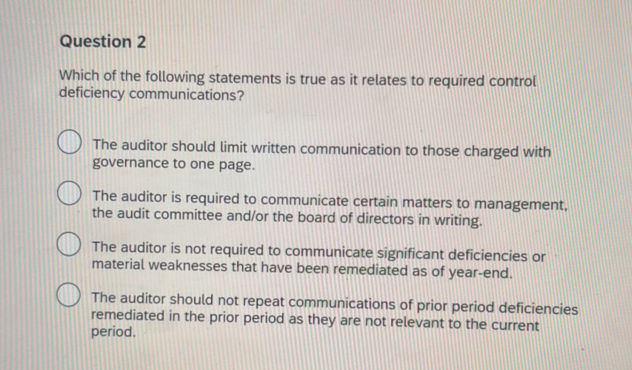
Introduction
Research compliance training presents to its learners one fundamental query which many find difficult to comprehend and answer correctly:
“Which of the following statements is true regarding the regulations that govern research?”
The correct response is vital because it challenges your understanding of human subject protection regulations along with your basic regulatory framework knowledge. The regulatory system provides an ethical and scientifically sound base for law-abiding research practice.
This guide includes an identification of the correct answer together with an explanation of its truth and an in-depth evaluation of research regulations for complete understanding.
What Are Research Regulations?
Research regulations include policies from the federal level and state level combined with institutional authorities which protect human subjects throughout research activities. The rules determine both the methods of data collection and participant safeguard measures while providing behavior expectations for researchers from start to finish.
Primary Goals of Research Regulations:
- Protect human subjects from harm
- Ensure informed consent is obtained
- Promote transparency and accountability
- Ensure scientific integrity
- Prevent conflicts of interest
The United States federal agencies Office for Human Research Protections (OHRP) and Food and Drug Administration (FDA) enforce the majority of research regulations that apply across the country.
Key U.S. Regulations Governing Research
a. The Common Rule (45 CFR 46)
Research ethics protection for human subjects relies on The Common Rule as the fundamental governing system. Research projects that obtain financial support from any Common Rule agency implemented by the Department of Health and Human Services will fall within its scope.
Key elements of the Common Rule:
- IRBs need to perform reviews and grant approval for all human subjects research.
- Incidental Harms Require Participants to Receive Detailed Information about the Research.
- The Common Rule recognizes special protective provisions for at-risk groups comprising pregnant women along with children and prisoners.
- The monitoring of research through time periods constitutes an essential requirement.
b. FDA Regulations (21 CFR Parts 50, 56, 312, and 812)
The FDA maintains authority over pharmacological research studies concerning drugs, both biological products and medical devices. The regulations set by the FDA share traits with the Common Rule but include particular requirements of their own.
Highlights include:
The complete set of compliance requirements for human research subject protection exists in 21 CFR Part 50: Protection of human subjects (informed consent).
- 21 CFR Part 56: IRB requirements.
- 21 CFR Part 312: Investigational New Drug (IND) applications.
- 21 CFR Part 812: Investigational Device Exemption (IDE) regulations.
c. HIPAA and Research
Protected health information (PHI) in research subjects is affected by the requirements of the Health Insurance Portability and Accountability Act (HIPAA). Researchers need to observe HIPAA Privacy Rule standards during patient data access by obtaining either specific authorization or an IRB or Privacy Board waiver.
d. IRB Oversight and Responsibilities
IRBs operate as objective review bodies which examine research proposals to verify their adherence to ethical and regulatory criteria. IRBs play a crucial role in:
- Approving research protocols
- Monitoring informed consent processes
- Reviewing study risks and benefits
- Ensuring participant protections

True vs. False: Understanding Common Statements
The following section will assess this specific topic. The following multiple-choice question appears before you.
Research regulations consist of which of the following accurate statements?
The following discussion presents several statements with one truthful answer among them.
Sample Statement A:
The FDA demands all human subject research to undergo institutional review prior to its commencement.
✅ False.
The FDA needs to approve only clinical trials of FDA-regulated items that include drugs or medical devices. All human subjects research requires inspection from either OHRP or an institution operating under its own review boards.
Sample Statement B:
The Common Rule exists to regulate privately supported research operations.
✅ False.
The Common Rule mainly affects federally funded research but certain institutions choose to extend its application to all research studies.
Sample Statement C (Correct Answer):
IRBs exist to review human subjects research for the purpose of upholding ethics requirements and regulatory standards.
✅ True.
The presented statement stands as a veritable truth. IRBs function as key entities that monitor research compliance adherence.
Sample Statement D:
Research participants need to give written authorization as HIPAA requires it for every case.
✅ False.
When HIPAA allows such waivers it requires both minimal privacy risks and approval from Institutional Review Boards.
✅ Correct Answer: Statement C
Research institutions use this process because the FDA together with Common Rule identify IRBs as the principal entities responsible for handling ethical oversight in human research.
Why Research Regulations Matter
Research regulations are mandatory for all researchers since they protect human subjects from unethical treatment. The established rules safeguard actual individuals from being mistreated or at risk and from being subjected to injury.
Importance of Regulations:
Ethical experimental research is protected from abuse through implementation of these laws (for instance the Tuskegee Syphilis Study).
- Builds trust in scientific research
- Ensures data integrity and reproducibility
- Protects institutions from legal action
Historical Context
A proper understanding of contemporary research regulations requires reviewing historic research abuses which motivated official regulatory changes.
Modern research ethics evolved from important historical events that have guided its development.
- Nuremberg Trials (1947) Led to the Nuremberg Code after atrocities in Nazi medical experiments.
- During the Tuskegee Syphilis Study which lasted from 1932 to 1972 researchers refused treatment to African American men participating in the study about how syphilis developed over time.
- Belmont Report (1979) Introduced ethical principles of respect for persons, beneficence, and justice.
Research needed to implement ethical standards and transparent procedures under proper governing mechanisms became evident through these pivotal occurrences.
Current Challenges in Research Regulation
Strict regulatory rules exist yet the regulatory system faces multiple challenges of its own:
Modern technology risks data privacy because of artificial intelligence (AI) in conjunction with big data and the use of cloud storage platforms.
- Multistage research across multiple countries becomes complex because different nations employ diverse ethical standards during research.
- Many research participants fail to understand because excessive forms coupled with legal wording make informed consent difficult to grasp.
- The process of IRB assessment combined with regulatory requirements leads to delays in research innovation.
- Researchers should improve transparency while working on standardization worldwide along with implementing digital consent systems.
Global vs. U.S. Regulatory Differences
U.S.-based regulations:
- The regulatory framework for U.S.-based regulations operate under the oversight of HHS together with FDA and NIH.
- Common Rule together with FDA represent the leading agencies operating in the U.S.
Global standards:
- Declaration of Helsinki (WMA): Ethical principles for research worldwide.
- ICH-GCP: International guidelines for good clinical practice.
- GDPR (EU) controls data security while also regulating scientific research practices across European territory.
During research activities involving multiple jurisdictions researchers need to follow requirements of every jurisdiction beyond their native country.
Best Practices for Compliance
Staying compliant with research regulations requires ongoing education and process management.
Tips for Compliance:
- Approval from an IRB must be obtained as the first step for conducting human subjects research.
- Your research team needs regular training about ethics together with regulatory amendments.
- Complaint data storage solutions that incorporate encrypted servers should be utilized by researchers.
- The documentation of informed consent processes should include complete details.
- You must immediately notify the IRB together with relevant authorities about adverse events.
- The review of procedures that deviate from protocol must be followed by immediate corrective measures.
Compliance isn’t just about checking boxes it’s about creating a culture of ethical research.
Final Thoughts
The correct statement about research regulations becomes observable when examining the following aunties.
IRBs exist to guarantee both regulatory compliance and ethical research integrity according to this accurate declaration.
Your understanding of both regulatory purpose and operational methods to protect people data and science stands essential above selecting the right answer.



